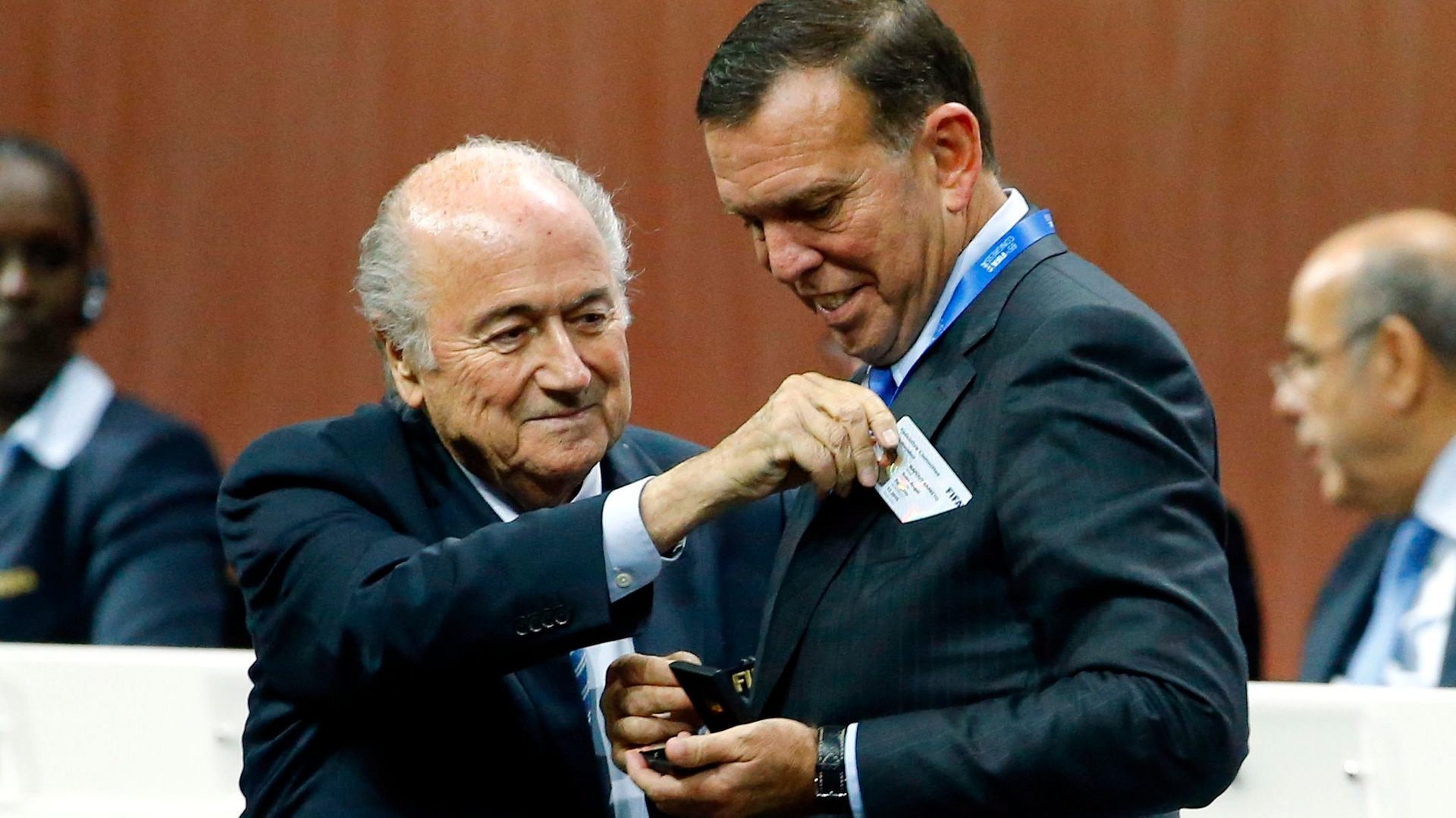How a brazen and unrepentant Sepp Blatter was re-elected as FIFA’s president
Sepp Blatter’s shockingly un-shocking re-election to a fifth consecutive four-year term as FIFA president was the triumph of a master game-player. His only competition, Jordan’s Prince Ali bin al-Hussein, stepped aside after Blatter acquired 133 of 209 votes in the first round of a secret ballot vote during FIFA’s annual meeting.


Sepp Blatter’s shockingly un-shocking re-election to a fifth consecutive four-year term as FIFA president was the triumph of a master game-player. His only competition, Jordan’s Prince Ali bin al-Hussein, stepped aside after Blatter acquired 133 of 209 votes in the first round of a secret ballot vote during FIFA’s annual meeting.
Though Blatter did not acquire the two-thirds majority necessary to win the first round of voting, the second round of voting, which would have required a simple majority to re-elect Blatter, was seen as a fait acompli.
The scandals that lead to the arrest of nine FIFA officials along with five sports marketing executives this week demonstrated that the world’s biggest major soccer tournaments are rife with kick-backs and abuses of official power.
But though cash has allegedly changed hands in previous FIFA presidential elections, the real reason that Blatter has been able to command such a slavish allegiance from the stakeholders of FIFA is his canny understanding of the organization’s rules—and the deployment of FIFA’s vast official funds. Prince Ali, the purported reform candidate backed by the North American and European confederations, never stood a chance.
FIFA is organized on a one-country, one-vote system, so that small countries like Costa Rica and the Cook Islands count just as much as a large ones like France, Germany, and the United States. If you can win the votes of many small countries, you don’t have to worry about public opinion, even in the world’s biggest most enthusiastic football-loving countries. And, as this story traces, Sepp Blatter was a master of directing official FIFA funds to small countries, poor countries, and countries who felt FIFA was too “eurocentric” to win their support. So long as he can do that while avoiding legal predicaments, there is little that the large and wealthy soccer nations calling for reform can do to oust him.
If internal reform fails, Nate Silver suggests an alternate route: The OECD countries whose TV audience provides the vast share of FIFA’s funding—they made up 60% of the GDP-weighted audience and 80% of the teams in the 2014 World Cup—could found a new international soccer organization and likely win over many of the wavering countries. That is the sort of strategy embedded in UEFA’s threatened boycott of Russia’s 2018 World Cup.
But will the soccer bureaucrats have the will to act? If not, while the erratic Blatter will no doubt install something described as reforms, the rest of the world will have to wait to see if any of the recent arrests give prosecutors enough evidence to overcome FIFA’s perverse institutional incentives.